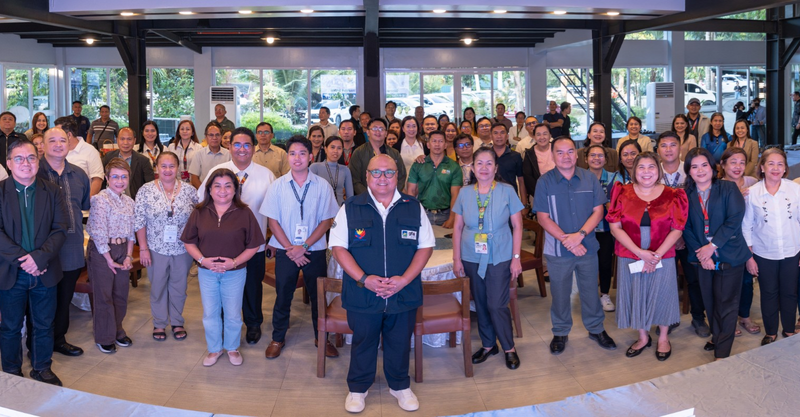CUHK Business School Research Reveals Why Some People Switch Jobs More Frequently Than Others
HONG KONG, CHINA – Media OutReach – July 5, 2017 – The following article was first published in the China Business Knowledge (CBK) website by The Chinese University of Hong Kong (CUHK) Business School – https://goo.gl/HwWXBS: According to the data from the National Longitudinal Surveys of Youth, it is possible that some people have worked in more than 10 jobs in a lifetime. In the study highlight posted by the US Bureau of Labour Statistics (LBS), “on average, from age 18 to age 48, American men held 11.8 jobs and women held 11.5 jobs.”
What is interesting is also the fact that the younger generation are more likely to change jobs than their older counterparts, as the report reveals that “men held 5.7 jobs from age 18 to age 24, compared with 2.4 jobs from age 40 to age 48”.
While some of us are happy to stay in our jobs for life, others find it hard to stick to even one. So what makes us feel satisfied with our jobs and stay on while others feel the opposite? Is it the environment or it is us?
Research by Wendong Li, assistant professor of the Department of Management at the Chinese University of Hong Kong (CUHK) Business School has shed lights on the interplay of genetic (i.e., the person) and work environment and how they influence the relationship we have with our job.
The Indispensable Role of Genetic Influences on Job Characteristics
“Traditionally, people believe that it is primarily the work environment, such as managers and organizations, which influences our job characteristics, such as the tasks we perform and the amount of autonomy we have at work” says Prof. Li.
“But accumulating research on person-environment fit has revealed the indispensable role of the person in influencing individuals’ job characteristics,” he says.
Prof. Li has been participating in extensive research in the genetic influence on work behavior. Earlier, his study has revealed how the dopamine transporter gene DAT1 contributes to the emergence of leadership in a person.
“People are not randomly assigned to work environments; instead, they select themselves, and/or are selected into compatible work environments to garner the optimal level of person-environment fit,” he says.
We can all relate to the fact that when looking for a job, apart from considering the salary and perks, we would also consider whether the job nature suits our personality.
“This is a form of manifestation that genetic factors shape our work attitudes and behaviors,” he says.
However, it doesn’t mean the environment plays no part at all. While the role of genetic influences is indispensable, environmental factors still play a role in affecting work characteristics.
His another study examined how a dopamine genetic marker, DRD4 7 Repeat allele, interacted with early life environmental factors (i.e., family socioeconomic status and neighborhood poverty) to influence job change frequency in adulthood. The gene is closely related to human motivation, reward, and self-regulation, which in turn may affect educational achievement and job changes.
“In our findings, higher family socioeconomic status was associated with higher educational achievement, resulting in higher frequency of voluntary job changes and lower frequency of involuntary job changes; such relationships were stronger (i.e., more positive or negative) for individuals with more DRD4 7R alleles.
“The results also told us the importance of providing a supportive environment to children and adolescents, which will have a positive influence not only on their immediate education outcomes but also on their long-term careers later in life.”
The Stability of Genetic and Environmental Influences Over Time
Normally, we would think our genetic makeup doesn’t change that much over time, therefore genetic influences on job satisfaction are also supposed to be relatively stable.
However, in his recent research entitled “Are Genetic and Environmental Influences on Job Satisfaction Stable Over Time? A Three-Wave Longitudinal Twin Study”, the results show otherwise.
“Previous research has portrayed genetic influences on job satisfaction as relatively stable. However, there have been no longitudinal examinations of whether that is true, especially during early adulthood. In our recent study, we investigated whether genetic influences on job satisfaction are constant over time, especially in early adulthood,” says Prof. Li.
The Study and Findings
The study collected data from the Minnesota Twin and Family Study of 712 same-sex twin pairs (i.e., 1,424 individuals in total), including 463 identical and 249 fraternal twin pairs, with their educational attainment and career development assessed at approximately 21, 25, and 30 years of age.
The researchers looked into three individual differences: general mental ability (or general intelligence), positive affectivity and negative affectivity in mediating genetic influences on job satisfaction through early adulthood.
General mental ability refers to individual’s general cognitive abilities to learn, reason and solve problems. It has been regarded as a valid predictive for various achievement measures in psychology. Research has shown general mental ability facilitates job training effectiveness, overall job performance, and occupational achievement.
“People with high levels of general mental ability tend to learn quickly and easily obtain job knowledge and will outperform those with low general mental ability.”
Positive affectivity and negative affectivity are general tendencies to experience positive and negative affective states across time and situations. People with high positive affectivity are confident, active and energetic; they are likely to experience positive emotions, and may select or create positive situations at work, which in turn boosts their job satisfaction.
People with high negative affectivity, on the other hand, tend to dwell on their shortcomings and personal failures, thus experience negative motions, and may foster negative circumstances at work, which in turn decrease their job satisfaction.
“People with high positive affectivity are sensitive to positive environmental cues and thus likely to perceive themselves and the world in a positive light, whereas those with high negative affectivity tend to view themselves and their environment through a negative lens,” says Prof. Li.
Genetic Influences Become Less Important Over Time
The study results show that as people accumulate more experiences when they develop into adulthood, genetic influences on individual characteristics become less important – but still significant – throughout early adulthood.
“We found that when participants were around 21 years old, genetic influences explained 31.2 percent of the variance in job satisfaction. However, genetic influences on job measured at age 25 and age 30 dropped significantly to 18.7 percent and 19.8 percent,” he adds.
In other words, genetic influences are likely to be diluted by work situations over time.
“During early adulthood, employees’ job satisfaction levels may be more shaped by environmental factors such as organizational practices (e.g., leadership, performance management, and reward systems) and economic situations, and these external factors may become increasingly important over time,” says Prof. Li.
“The results also show that after partialling out genetic influences, environmental influences on job satisfaction were related to interpersonal conflict at work and occupational status, and these influences were relatively stable across the three time points,” he adds.
How to Enhance Employees’ Job Satisfaction
Since during early adulthood, employees’ job satisfaction levels may be shaped by environmental factors more, organizations could have more room to influence employees’ job satisfaction by introducing appropriate measures. Prof. Li suggests that firms should try to tailor their practices according to individual differences.
“Organizations should pay more attention to the importance of employees’ personality traits in customizing their practices, as it shows in our study that positive affectivity is important in boosting job satisfaction. This is similar to personalized medicine,” Prof. Li says.
In enhancing job satisfaction among employees, other environmental factors should also be considered.
“As our study shows that interpersonal conflicts significantly affected job satisfaction, maintaining harmonized interpersonal relationships at work will be a useful approach to keep your employees,” he says.
- Kaspersky Lab helps uncover vulnerabilities on gas stations by hackers - February 12, 2018
- 26-percent of Ransomware Attacks now target business - November 30, 2017
- The Battle is on to Fight Human Immunodeficiency Virus (HIV) - November 27, 2017




